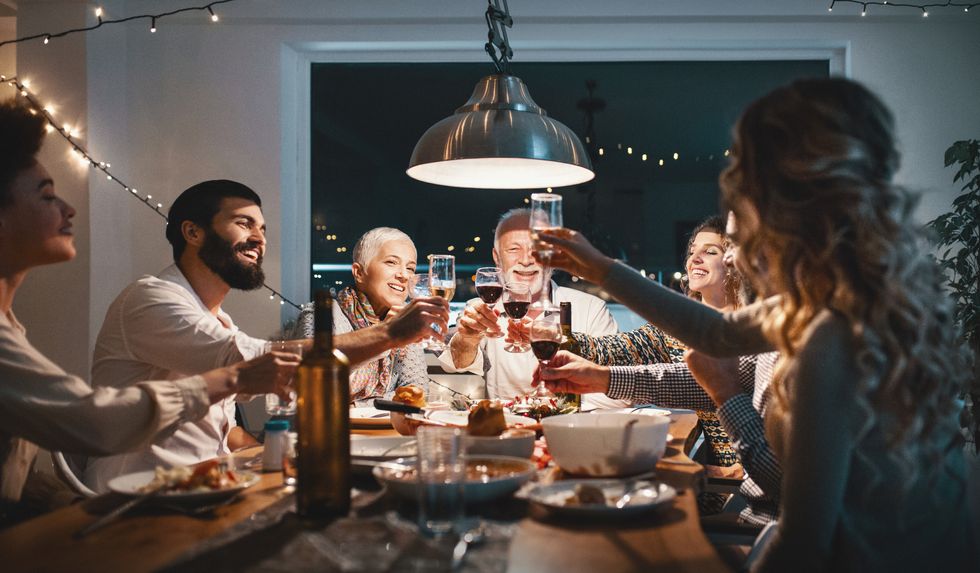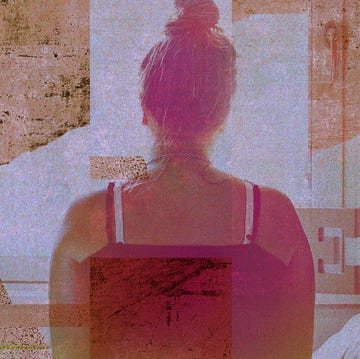Caring for our mental health is more essential than ever before. The way we treat our bodies, how and with whom we spend our time, and what thoughts take center stage in our minds are vital. In the monthly Shondaland series A Path to Well-Being, we’re sharing science and strategies to help you better understand and manage your well-being.
While it may be the most wonderful time of the year, for many people, the holidays can bring on the blues. There could be family strife or a loved one missing from the celebrations. The parties you’re planning may not look as polished as those your friends are posting about on social media — or you may have received few invitations. It could seem like everyone is traveling to winter wonderlands, and you’re the only one stuck at work. Your gift list and your budget might not match up. And the season’s treats and booze might be taking too much of a personal toll on you.
It’s not unusual to experience low moods during this season of joy, according to psychiatrist Christine Crawford, associate medical director of the National Alliance on Mental Illness and a professor at Boston University School of Medicine. “There are messages that we’re continuously being bombarded with regarding the holidays and what it means to experience the holidays with your friends and family,” she says. “It paints the picture that one should be happy, looking forward to it, [and] excited by these celebrations, but when that isn’t consistent with reality for a number of different factors and reasons, that can be really hard to reconcile.”
The pandemic has made things even more challenging, Crawford says, as so many were isolated and may not feel as close to their friends and family members as they once did. They may have lost loved ones or a job, and such losses shape the way the season is experienced.
“A lot of folks might underestimate how they may feel around the time of the holidays,” Crawford says. “Even if you lost someone a while ago, it still brings up that feeling of not having certain traditions in place because of the absence of a particular person.”
Self-care is paramount this time of year, Crawford notes. When there’s every temptation to overeat, overspend, and overindulge, it’s essential to have strategies in place to safeguard our well-being. Here are strategies that Crawford recommends this season:
Maintain routines
Resist the urge to allow seasonal festivities to become a reason for late nights, not enough exercise, and a diet made up entirely of eggnog and hors d’oeuvres. While it’s easy to skimp on healthy habits this time of year, staying consistent helps provide the physical and mental stamina to get through the holidays and start 2023 feeling good.
“It’s key because you want to be in the best state of mind and in the best physical state in order to be able to really enjoy the holiday season,” Crawford says. Taking good care of ourselves better equips us to notice and respond to low moods and set boundaries with ourselves and others, she adds. It’s much easier to decline an invitation or a second glass of champagne when you’re feeling physically and mentally well.
Assess plans
Take some time to consider what events you want to commit to and let your feelings, not past history, be your guide. “You’re a different person this year,” Crawford explains. “You’ve had a different set of experiences over the course of the year, and you may be in a different place — mentally and emotionally — this year, so [there’s] no need to compare yourself to what it is that you did in the past or feel obligated to repeat history.”
Pay attention to the feelings that arise as you consider the potential events of the season. If thinking about Aunt Sue’s annual Christmas Eve party fills you with anxiety, it might be a sign to skip that soiree this year.
“Oftentimes, people make these decisions at the very last minute, which can create conflict and disappointment,” Crawford notes. “It can be really hard and challenging to repair that breakdown, but if you give people advance warning and notice because you are thinking ahead about some of the feelings it’s bringing up for you, hopefully that can make it a little bit easier to navigate and reduce some of that disappointment.”
Take a similarly thoughtful approach when it comes to setting personal limits on spending and indulging in seasonal food and drink, Crawford suggests. You might propose drawing names for a family gift exchange rather than buying something for each individual. Or you could get crafty and make your gifts this year. You may limit yourself to one fabulous cocktail at the holiday party, or you could choose to have cranberry juice all night. Perhaps treat yourself to a single slice of pecan pie (or whatever is your favorite holiday treat) and forgo those other sweets.
Coming up with a game plan ahead of time makes it easier not to go overboard. “We often just show up, and it’s like a free-for-all,” Crawford says. “The more planning you can do, the better prepared, less anxious, and better able you are to enjoy that event.”
Try the broken-record approach
If having personal boundaries in place about which events to attend and how much to indulge is step No. 1, communicating those boundaries is step No. 2. This is where having a script and practicing it — Crawford suggests looking in the mirror as you do — can be especially effective. “Say these things out loud because you want to make sure you’re completely comfortable and confident speaking these words and having these words come out of your mouth,” she says.
Resist the urge to over explain yourself. That’s where the “broken record” approach comes in. Rather than going into detail about how you’re skipping the event because you’re not eating carbs right now, your sobriety feels too fragile, or you can’t actually afford the pricey ticket, simply decline and repeat.
When “Thank you for the invitation! Sorry, I can’t make it” is met with “Oh, no! Why not? You have to be there!” Crawford suggests responding with “I know. I really appreciate how much you want me to be there. I’m sorry I can’t come this time.” Then, repeat variations of the same phrase.
“Don’t feel pressure to give an explanation,” Crawford notes. “Especially as women, we feel we have to explain away the reason we don’t want to do something. Using this broken-record approach can make it a little bit easier for folks who have a tendency to explain away everything. It’s setting a boundary — and the boundary is that you don’t have to disclose if you don’t feel comfortable.”
Sandy Cohen is a writer, health and wellness coach, and host of theInner Peace to Go podcast. Follow her on Twitter @YouKnowSandy.
Get Shondaland directly in your inbox: SUBSCRIBE TODAY
















